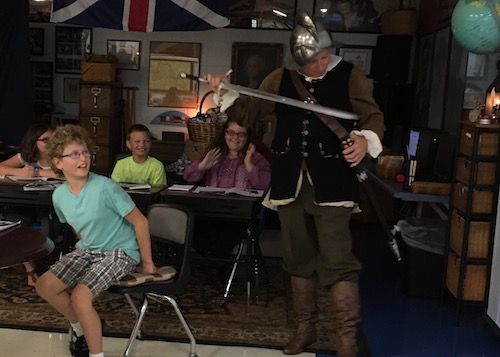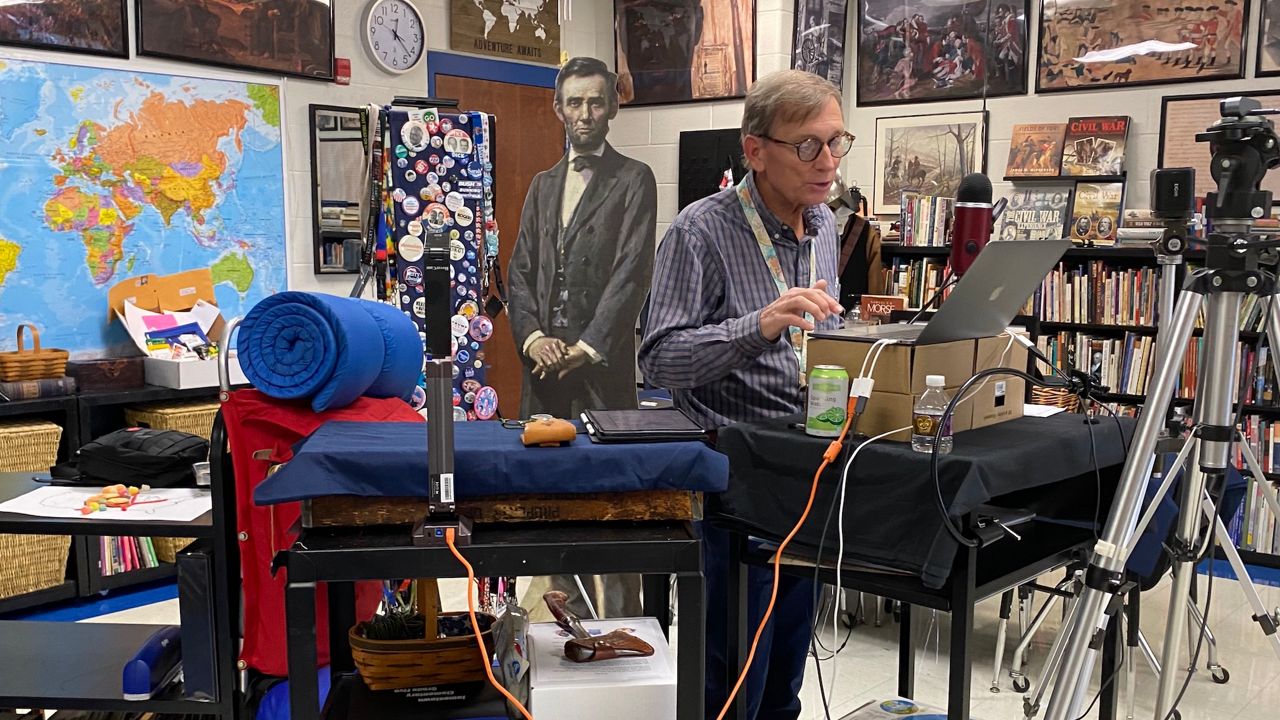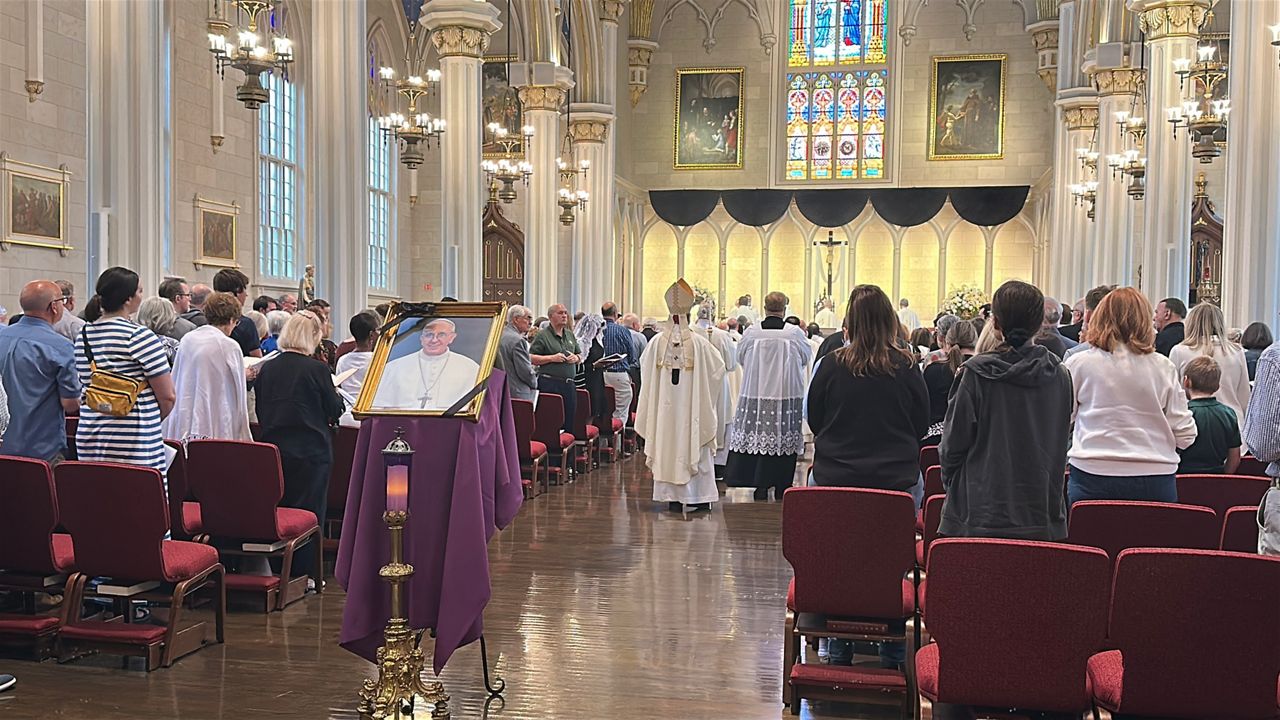LOUISVILLE, Ky. — By the time Donnie Wilkerson begins teaching his fifth graders about the Civil War, some of them have already started learning about the conflict at home.
“They’ll tell me, ‘My dad said the Civil War wasn't really about slavery; it was about states' rights,” said Wilkerson, a history teacher at Jamestown Elementary School and the 2011 Kentucky History Teacher of the Year. “Or they’ll say, ‘A lot of enslaved people were treated nicely by their masters.’”
Under a bill passed by the General Assembly and sent to Gov. Andy Beshear's desk last week, Wilkerson fears he will be required to teach that perspective.
“I certainly have no intention to do that and I won't,” he said. “But under this bill, I think I could be held to that standard.”
The language that concerns Wilkerson is contained in Senate Bill 1, a broad education-related bill that is part of a national Republican effort to legislate the manner in which history and racism is taught in public schools.

Last week, language from Senate Bill 138, “The Teaching American Principles Act,” was added to SB1. It lays out specific requirements for lessons on “controversial topics related to public policy or social affairs.”
Those lessons and any material used in those lessons must be “within the range of knowledge, understanding, age, and maturity of the students receiving the instruction.” The lesson and associated materials must also be “relevant, objective, nondiscriminatory, and respectful to the differing perspectives of students.”
“Those are big parameters,” Wilkerson said. He sees vagueness in that language and is concerned about whether he can legally use seventh grade reading-level books in his fifth-grade classroom, since that reading material may be deemed outside of the range of maturity of his students.
But it’s the bill’s language about respecting “differing perspectives” that has him most concerned.
“There are Holocaust deniers right here in my backyard,” Wilkerson said. “If I have their students in my class, do I have to have a book that presents their perspective?”
Wilkerson quickly added that he doesn't believe he’ll be forced to teach historic conspiracy theories, even if the parents of his students hold those beliefs. But he can imagine a scenario where superintendents and principals err on the side of caution.
“They’re going to say, ‘You could teach that if you want, but let’s not rock the boat. Let’s just keep the curriculum safe. We don’t want to have any parent complaints,” he said.
Speaking in a legislative committee meeting in February, Sen Max Wise, the sponsor of SB138, explained that the language Wilkerson is concerned about is meant to ensure that lessons are “non-discriminatory in nature to any kind of person.”
There are other portions of Senate Bill 1 that encroach too much on the classroom for some teachers. One section of the bill lists 24 “fundamental American documents and speeches” that teachers will be required to cover in middle and high school.
Some have criticized the list for containing largely white, male perspectives about American history. Others have said it’s an example of legislative overreach. Cassie Lyles, a social studies teacher at Fairdale High School in Southern Jefferson County, believes both things are true.
“These sources should come from diverse perspectives,” she wrote in an email. “The list they have provided is not diverse. Many of them are already taught, some are not, but the reality is that I know what is best for my students.”
She said she is best suited to choose texts for her classroom and to create meaningful learning experiences. But that effort is compromised, she said, “if I'm hamstrung by legislators who know nothing of what my students need.”
State education officials have also criticized this part of the legislation, with Kentucky Education Commissioner Jason Glass saying his concern is “that the state legislature, through a process that is political by design, is mandating curricular resources.”

Sen. Wise has said the list is not meant to be exhaustive and that teachers are free to add material to supplement it. But he told colleagues in a committee hearing that the list is also a necessary corrective to a lack of specificity in the standards.
“Educators and parents have complained that the standards seem to lack specific references to key people, key events, key struggles and key challenges and also ongoing successes that have forged American democratic principles of equality, freedom and individual rights,” he said.
Lyles is unconvinced.
“I don't need a curriculum of check boxes, nor do I need a curriculum driven by fear,” she said. “As for me and my classroom, we will learn the truth.”
Wilkerson sounded a similar note about how he will proceed under this new legislation.
“I will continue to teach the way I've taught until one of my administrators comes to me and says don't do that anymore,” he said. “I'll honor their wishes, but then I'll take it to court, because students need to know about the true history of your country.”









